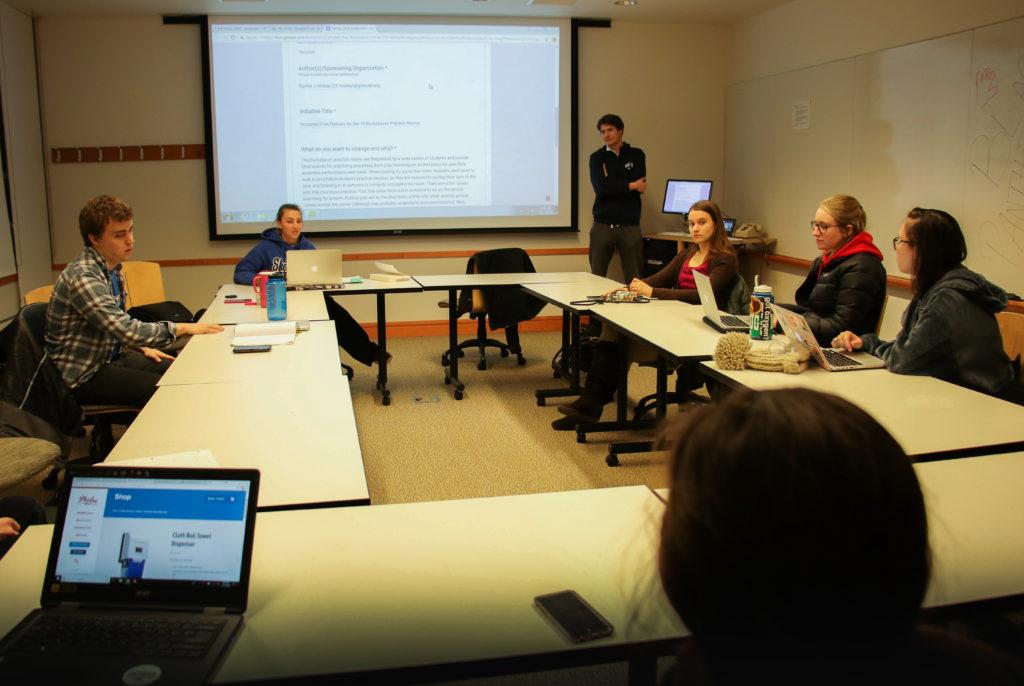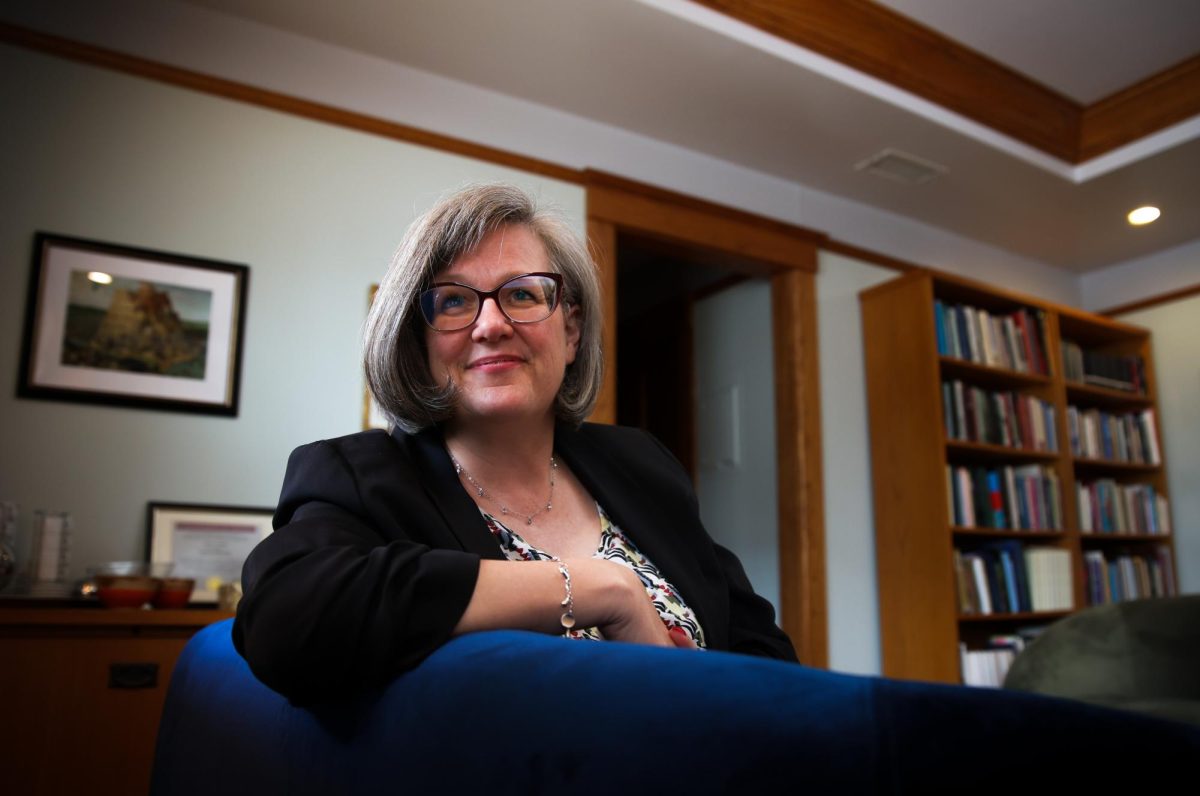All 14 proposed student initiatives for the Spring 2018 semester passed, garnering at least 66.67 percent of the vote, according to an e-mail from Student Government Association (SGA). On Feb. 5. 853 students in total voted, surpassing the required 50 percent participation threshold for initiatives to pass.
Student initiatives carry a special significance for the student body, as they are an opportunity for students to have their voices heard and to participate in student government. Proposed initiatives can result in changes to the basics of campus life as well as broader issues facing the College.
The ever-present issue of divestment was on the ballot this semester, encouraging the College to divest from its holdings in fossil fuel investments. But such hot-button political issues were not the focus of most of this semester’s student initiatives. Many proposals this semester focused on promoting a better quality of student life, mainly in residence areas and public spaces.
At a meeting on Feb. 8, SGA officials and representatives for various initiatives gathered to discuss the proposals passed by the student body. Among these suggestions were adding mint tea and protein powder to the dining hall, adding non-caffeinated herbal tea in the libraries, painting student murals in campus basements, adding water filters, toasters and kettles to residence hall kitchens, acquiring light therapy “happy lamps” for residence hall lounges, purchasing hand dryers for residence hall bathrooms, fixing shrill squeaky chairs above the Grill, procuring occupied/free plaques for Bucksbaum practice spaces, updating televisions in residence halls, allowing the option for inclusion of gender pronouns on the Grinnell Database (DB), and setting up a system to alert students about available laundry facilities and completed laundry cycles.
SGA Technical Advisor and Senator Myles Becker ’19 spearheaded the initiatives to update residence halls televisions, add gender pronouns on DB and obtain laundry alert systems. The motivation for submitting these proposals came out of disappointments with technology on campus, Becker explained.
“Some things I brought up in discussions with the AV center were students reporting lackluster experiences with the television[s] on campus, especially during football season,” Becker said.
Another of Becker’s proposals, inclusion of gender pronouns on DB, grew out of his work on the issue last semester. Becker had already put in some groundwork on the proposals, working with officials in the Office of Diversity and Inclusion and Information Technology Services. 97 percent of the students who voted supported the proposal.
“We’ve been talking about this since probably late September or early October. I wanted pronouns on DB. That passed with [President Kington’s] signature last semester. … It’s definitely going to happen. … The policy has been approved, and Administration has indicated this is something they are prioritizing, but the issue now is that the architecture for DB is very old, and ITS wants to move that into GrinnellShare,” Becker said.
But even if a student initiative is passed with considerable support, there is no guarantee it will be put into action. Student Initiative Fund Committee Chair Antonio DiMarco ’18 explained the role of the Committee and SGA in the process of implementation.
“We have a committee with a couple senators involved, and it’s really our job to facilitate the process of implementing. We give a stage to implement their vision of what Grinnell should be. We help them connect to the resources they need to make their vision a reality. … Just because an initiative is passed by the student body doesn’t mean it has to be implemented. Ultimately, the final decision is whether the authors want to make it a reality,” DiMarco said.

Rather than a purely facilitator role, SGA acts as a middleman between the authors of student initiatives and sources of funding and all pertinent resources to implement initiatives. Ultimately, the authors of initiatives are responsible for their implementation. According to DiMarco, “We act as a mediator for that process. It’s a good mix of both … but I would say it falls more in [the students’] hands to see their initiative into fruition.”
Funding student initiatives are not the express responsibility of the Student Initiative Fund, though the roughly $2,500 allocated to SGA for this purpose does play a part. A number of student initiatives this semester will likely use resources outside the Fund to be implemented, a common practice for student initiatives given the limited amount of money allocated to them. These may include acquiring funding from SHACS for “happy lamps,” or assistance from Facilities Management to make updates to residence areas, among other possibilities.
“If you have an idea, you can go and do that, even without the Student Initiative Fund,” DiMarco said. “But we will make it a lot easier for you to get in contact with people, and to provide funding.”




























































